Hormones
All information about "Hormones" and the related magazine articles can be found here.
Our articles are written clearly and link to scientific studies where relevant. This is how we meet our own standards: we regularly deliver new, high-quality content for you—free of charge, no sign-up required, with the highest possible benefit to you.

These are the causes of hair loss
There are many different types of hair loss in men and women - and there are different ways to help your hair grow back. Find out more now.
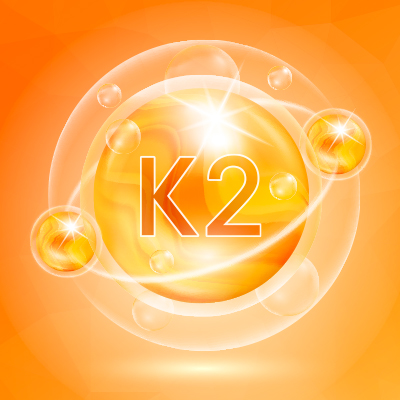
Vitamin K2 for bones and cardiovascular health
A vitamin K2 deficiency is associated with osteoporosis and arteriosclerosis. Here you can find out more about this important vitamin, its function in calcium metabolism and what you should definitely bear in mind when taking a supplement.
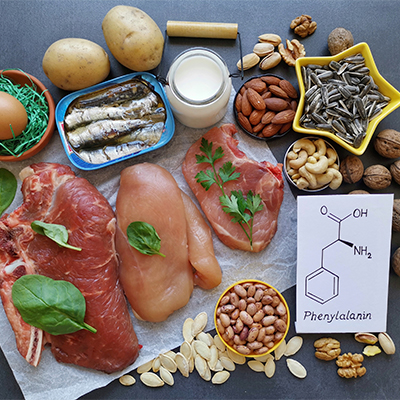
The body needs phenylalanine for this
The amino acid phenylalanine is required for the synthesis of dopamine and serotonin and is also an important building block for proteins. Find out more now.
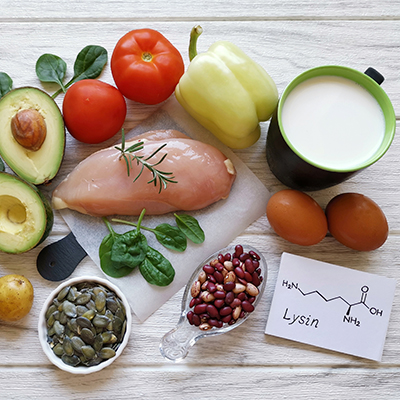
The essential amino acid lysine
From the metabolism to the immune system to the skin: there are many processes in the body in which lysine is involved. A deficiency of the essential amino acid can therefore disrupt these processes. The good news is that lysine is found in many foods. Find out more in this articel!

Your nutritional timetable for pregnancy
The right diet is particularly important during pregnancy to ensure that the expectant mother and, above all, the baby are adequately supplied with all the important nutrients. Because nutrition can influence the baby's development! Valuable answers and tips can be found here.
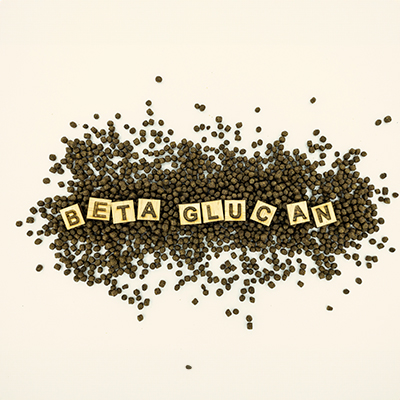
The importance of beta-glucan for the body
Good for the gut and the immune system? Fibre is said to have a number of health-promoting properties and effects. We have summarised these for you in this article.
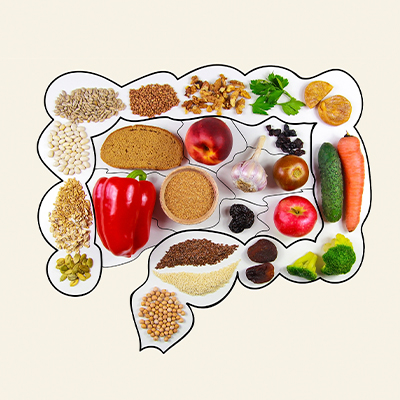
Propionic acid - why we need vegetables for this
Everyone has heard that fibre is important for our health, but do you know why? Did you know that vegetables and pulses form propionic acid in our gut? But what is it good for? Find out more here!

Selenium - effect, deficiency and overdose!
The trace element selenium, which is essential for us, plays a supporting role throughout the body - whether in numerous metabolic processes or a healthy thyroid gland. However, the low content of selenium in our food is often not enough to ensure an adequate supply. What exciting findings have scientists made with it in research and how is it linked to Hashimoto's? Selenium deficiency or overdose - how bad is it in each case? Read more about it here!

Guarana - a good coffee alternative?
Is guarana a real alternative to your morning cup of coffee? The extract from the superfruit from the tropics is becoming increasingly popular as an additive for drinks and as a supplement.
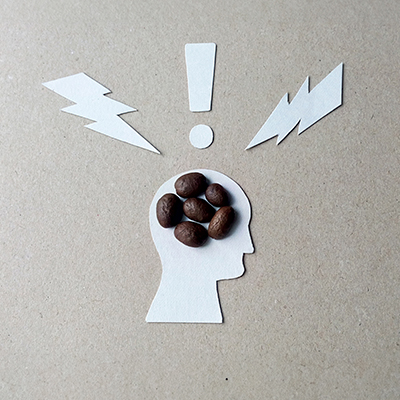
All you need to know about caffeine tablets
Caffeine tablets are a convenient and fast-acting way to get the energy boost of caffeine without drinking a cup of coffee or other caffeinated beverages. Find out more now.

Brown algae - nutrients and vitamins from the sea
Inconspicuous and widely underestimated: brown algae are not only tasty as food, but also a good way to support your body as a dietary supplement. Find out everything you need to know about the benefits of these algae here.

Turmeric - more than just a spice
Turmeric is still very popular today. What is the truth behind the phenomenal effects attributed to this yellow tuber?

The underrated power of folate: Why this vitamin is so important

B6 - a vitamin with many tasks!
The water-soluble vitamin cannot be stored by the body, but is extremely important for us! It is essential for metabolic processes, nerve transmission, hormone production, the immune system and also for regulating homocysteine levels! But despite a balanced diet, are you at risk of vitamin B6 deficiency? Maybe it's due to the contraceptive pill! Read more about this here!

Why is methylsulfonylmethane (MSM) so important to us?
An adequate supply of sulphur is essential for the proper functioning of enzymes and amino acids. Here you can read about the benefits of MSM for our skin and hair, as well as for osteoarthritis, allergies and sports injuries.

Getting all the vitamin B12 you need in a vegan diet
Those on a vegan or vegetarian diet should pay more attention to whether they have an adequate supply of vitamin B12. Find out more now

Get rid of bladder infections!
Almost every woman has had a urinary tract infection, and some suffer from it regularly. Find out why we should take this infection seriously, how it develops and what types of treatment are available!

About vitamin B12 deficiency and pain
We all know that B vitamins are very important for our health. But many people don't realise how serious a vitamin B12 deficiency can be! Not just for vegetarians, vegans, pregnant or breastfeeding women, diabetics or even alcohol drinkers!

L-threonine - an essential amino acid with important functions
Amino acids are an important building block for our health. Which ones can the body produce and which ones need to be ingested in order to fulfil all functions? What are the risks for vegans and what are the dangers of a deficiency? Our report answers the most important questions!
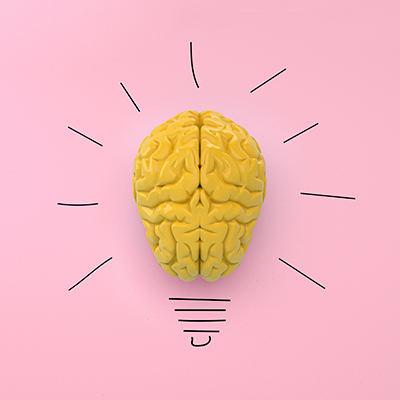
Why NADH is important for the body
They are the basic building blocks of the body: cells. Their job is to absorb nutrients and use their energy for metabolism. An important factor in this process is NADH.

The link between L-Arginine and women's health
The amino acid L-Arginine is primarily associated with muscle growth and improved endurance. Some studies suggest that it may also have a positive effect on women's health.

Zinc deficiency: important facts for your health
Discover the effects of zinc deficiency on your health and how to recognise and treat it. Find out why zinc is an essential trace element for your body and mind, and how to maintain optimal zinc levels. Improve your health with this comprehensive information on zinc deficiency!

Fitter and stronger with L-Carnosine?
Although carnosine can be produced by the human body, it is a popular supplement among athletes - in powder or capsule form. In this article, you can find out what specific effects it has on performance and what other functions it is involved in.

Magnesium: How does it affect the menstrual cycle?
Many women are familiar with them and suffer from them every month: Menstrual cramps. Read more about the processes in your body during your period, discover natural approaches to relieve the pain and find out what role magnesium and other nutrients play in this. Improve your quality of life during your period in a completely natural way!
All about Hormones: Your Key to a Balanced Life
Have you ever wondered why you sometimes feel energised and focused, while other days you are tired and irritable? The answer often lies in the complex workings of our hormones. They work in the background and influence our organs and our well-being. In our guide to hormones – the key to a balanced life – you will learn how these invisible regulators shape your everyday life and how you can optimise your hormonal balance to get the best out of every day.
What role do hormones play in the human body?
The human hormone system has a very complex structure. The most important hormones play a central role in controlling and regulating a variety of vital bodily functions: These chemical messengers are produced by various endocrine glands (hormone glands) and released into the bloodstream to interact with specific target cells in the body and achieve a specific effect.
Through these interactions, the important neurotransmitters influence a variety of processes, including body growth and development, metabolic functions, reproduction, mood and responses to stress [9]. They also help to adjust the body to external and internal changes and maintain a homeostatic balance [9]. In short, the hormonal system is crucial for maintaining a healthy and functioning organism.
How are hormones produced and regulated?
Various hormones regulate our metabolism, body temperature, salt and water balance, circulation, behaviour and much more [1]. But how does the body know which different hormones it should produce in order to be in balance? Hormones are produced by hormone glands (endocrine glands). These glands, such as the thyroid, adrenal glands and pancreas, are part of the endocrine system and are responsible for synthesising and releasing specific hormones. The production and release of our own hormones occurs in response to complex feedback mechanisms that are influenced by various factors such as the nervous system, other hormones in the body and external environmental factors [4].
This regulation ensures that hormone levels remain within an optimal range to support the body's functions. So-called regulatory circuits control the production of most hormones. The various endocrine glands stimulate or inhibit each other [7]. Hormones can also act on their own gland of origin or a higher-level gland and influence the quantity of hormones. Many hormones of the hypothalamus are also regulated with the help of such ‘feedback loops’, in which the amount of a hormone that has already been produced promotes or curbs its own production. The hypothalamus is a part of the brain that plays an important role in controlling the endocrine system, producing hormones that stimulate or inhibit the pituitary gland to release other hormones [7].
What are the different types of hormones?
There are different types of hormones in the body, including steroid hormones, peptide hormones, amino acid derivatives and thyroid hormones [9]. These are produced by various endocrine glands (hormonal glands) and tissues and regulate a variety of physiological processes. Steroid hormones such as oestrogen and testosterone influence reproductive and metabolic functions.
Peptide hormones such as insulin and glucagon are crucial for the regulation of blood sugar levels and energy metabolism. Amino acid derivatives such as adrenaline and thyroxine have an effect on metabolism, heart rate and energy production. Thyroid hormones such as thyroxine regulate metabolic functions and body growth.
How do hormones affect mood and emotions?
Certain hormones influence mood and emotions by acting on the nervous system and the brain [9]. Serotonin, for example, a neurotransmitter often associated with happiness and well-being, can be influenced by hormones. An imbalance of cortisol, for example, which is released during stress, can lead to mood swings. Certain hormones such as oestrogen and progesterone, which vary during the menstrual cycle, can also affect mood.
What are the effects of hormones on metabolism and weight?
Other hormones such as insulin, thyroid hormones and cortisol directly affect metabolism by controlling the absorption, storage and utilisation of nutrients such as carbohydrates, fats and proteins [10]. Insulin, for example, lowers blood glucose levels by transporting glucose from the blood into the cells where it is used for energy or stored as glycogen.
An imbalance of these hormones can affect metabolic processes in the endocrine system, which can lead to metabolic disorders such as diabetes or hypothyroidism, which in turn can be linked to weight gain [11]. Certain hormones such as leptin and ghrelin influence feelings of hunger and satiety by signalling to the brain when we should eat and when we feel full. If this regulatory system is disrupted, this can lead to food cravings, overeating and weight gain.
What influence do hormones have on the menstrual cycle?
Hormones such as oestrogen and progesterone regulate the menstrual cycle. During the cycle, hormone levels rise and fall, which influences ovulation, the thickness of the uterine lining and the onset of menstruation. At the beginning of the menstrual cycle, the ovaries tend to produce less oestrogen, whereas shortly before ovulation they produce a lot [2]. Oestrogen stimulates the formation of the uterine lining, while progesterone supports its build-up and is important for preparing for a possible pregnancy. If fertilisation does not take place, hormone levels fall, which leads to the shedding of the uterine lining and the onset of menstruation.
Many women find the time before and during their menstruation problematic and painful. Find out here how magnesium can support you with menstrual cramps.
How can hormones influence growth and development?
Hormones play an essential role in human growth and body development by regulating various organ systems and controlling important processes such as bone growth, muscle development and reproductive maturation. Testosterone in particular is crucial as it regulates sex differentiation during embryonic development and puberty, promotes secondary sexual characteristics such as penile growth and sperm production, influences the transformation of vellus hair into mature hair follicles and supports both muscle growth and bone formation [3].
What endocrine disorders are there and how are they treated?
There are various disorders of the endocrine system that can affect the body and health. Some of the most common hormonal disorders are [12]:
Underactive thyroid (hypothyroidism): This is where the thyroid gland does not produce enough of the thyroid hormone thyroxine, which can lead to symptoms such as fatigue, weight gain and dry skin. The thyroid gland is often treated by taking thyroid hormone supplements. Selenium can also be used as a supportive measure.
Hyperthyroidism (overactive thyroid): This is the opposite of hypothyroidism, in which the thyroid gland produces too much thyroid hormone thyroxine. Symptoms can include weight loss, nervousness and an accelerated heartbeat. Treatment may include medication, radioiodine therapy or, in some cases, surgery.
Diabetes: Diabetes is a metabolic disorder characterised by a lack of insulin or insulin resistance. Treatment often involves a combination of dietary changes, physical activity, medication and insulin injections.
Adrenal insufficiency: With this problem, the adrenal glands do not produce enough hormones such as cortisol and aldosterone. Treatment usually consists of lifelong intake of hormone replacement preparations.
Pituitary disorders: The pituitary gland in the brain produces various hormones that regulate the human body. It is controlled by the hypothalamus. Impairments in this area can lead to a variety of problems, including an imbalance in other hormone production. Treatment depends on the specific impairment of the endocrine system and may include the administration of replacement hormones, medication or, in some cases, surgery.
The treatment of endocrine disorders is usually carried out under medical supervision and is based on the identification of the underlying cause and a personalised therapy.
What role do hormones play during pregnancy?
During pregnancy, hormones play a crucial role in the regulation of various physiological processes. They not only influence the development of the foetus, but also the adaptation of the mother's organs to the pregnancy. Hormones such as oestrogen and progesterone help to build up the uterine lining and prepare it for implantation of the fertilised egg [13].
During pregnancy, the body also produces hormones such as hCG (human chorionic gonadotropin), which supports the production of progesterone and maintains the pregnancy. Other hormones such as prolactin prepare the breasts for milk production [13]. Overall, hormones regulate a variety of processes during pregnancy that are crucial for the well-being of mother and child. Hormone production takes place in various organs such as the ovaries and the pituitary gland.
How can we regulate and balance hormones naturally?
Regulating and balancing hormones can be achieved naturally through various lifestyle and dietary adjustments:
Regular physical activity: exercise can help regulate hormone levels and improve well-being [14].
Adequate sleep: An adequate amount of sleep is crucial for hormone production and maintaining balance [15].
Stress management techniques: Meditation, yoga and relaxation exercises can help reduce stress and support hormone balance [16].
Balanced diet: A diet rich in vegetables, fruit, wholemeal products and healthy fats can help regulate hormones [17]. Try an alkaline diet.
Limit sugary and processed foods: Reducing sugary and processed foods can help minimise fluctuations in blood sugar levels and improve hormone balance [17].
Certain herbs, supplements such as omega-3 fatty acids and vitamins can also support hormone balance. However, before taking supplements, it is advisable to consult a doctor to consider possible interactions or contraindications.
[1] https://www.internisten-im-netz.de/fachgebiete/hormone-stoffwechsel/regulation-der-hormone.html
[2] https://www.internisten-im-netz.de/fachgebiete/hormone-stoffwechsel/hormondruesen-und-moegliche-erkrankungen/hypothalamus/
[3] https://www.hormonspezialisten.de/sexualhormone/testosteron/funktionen
[4] https://www.studysmarter.de/studium/medizin/innere-medizin/endokrines-system/
[5] https://www.msdmanuals.com/de-de/profi/endokrine-und-metabolische-krankheiten/grundlagen-der-endokrinologie/%C3%BCbersicht-%C3%BCber-das-endokrine-system
[6] https://flexikon.doccheck.com/de/Endokrines_System
[7] https://www.spektrum.de/lexikon/ernaehrung/endokrine-regulation/2470
[8] https://www.bund.net/fileadmin/user_upload_bund/publikationen/fluesse/fluesse_hormonaktive_substanzen_hintergrund.pdf
[9] https://www.endocrine.org/-/media/endocrine/files/patient-engagement/misc_other/hormone_guide_5x5_grid_25x25_english.pdf
[10] https://pubmed.ncbi.nlm.nih.gov/9556085/
[11] https://www.deutsches-schilddruesenzentrum.de/gut-leben-mit-diabetes-experteninterview-mit-prof-zieren/
[12] https://www.frauenaerzte-im-netz.de/erkrankungen/hormonstoerungen/therapie/
[13] https://www.yourhormones.info/topical-issues/hormones-of-pregnancy-and-labour/
[14] https://www.tk.de/techniker/magazin/life-balance/aktiv-entspannen/stress-abbauen-mit-sport-und-bewegung-2093232?tkcm=ab
[15] https://www.aerzteblatt.de/archiv/1375/Neue-Erkenntnisse-der-Chronobiologie-Wie-Hormone-Schlaf-und-Stoffwechsel-regulieren
[16] https://www.daserste.de/information/wissen-kultur/w-wie-wissen/sendung/2012/entspannung-102.html
[17] https://www.hans-riegel-fachpreise.com/fileadmin/hans-riegel-fachpreise/Module/ausgezeichnete-arbeiten/hans-riegel-fachpreise-seminararbeit-vwa-2020-Rathke.pdf
